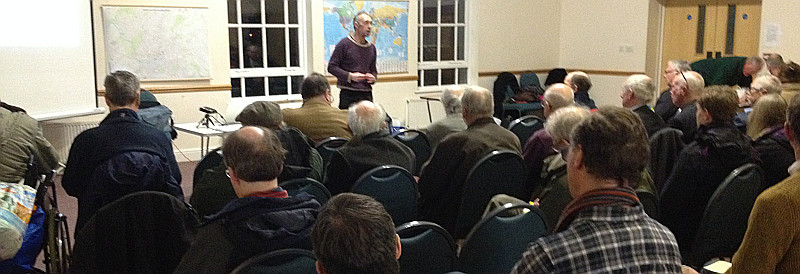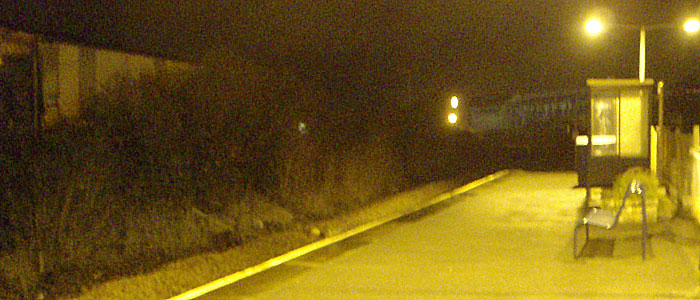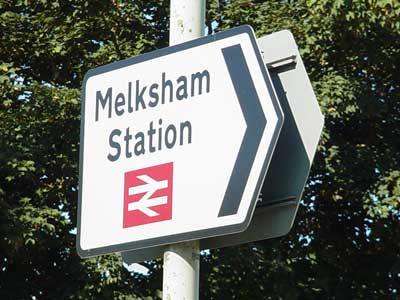
Move on to cabinet responsibility
This campaign tip (no. 43) was published on Tuesday, 12th February 2019
At the early stages of your campaign, solicit all view / ideas - positive and identify the negative too. But then as you work out and press for the solution / change you want, it can become the time to say "we have discussed this to ad nauseam - let's just F***** do it. The railway has a way of going through all of this in GRIP (defined just below) which initially looks horrendous, but yet maps quite well to JFDI (with lots of extra bells as whistles).
GRIP - Guide to Rail Investment Process - rail system for larger projects
1. Define the output for the project. For example, connect new terminal.
2. Define the scope of the investment and identify constraints. Confirm that the outputs can be economically delivered and aligned with network strategy.
3. Develops options for addressing constraints. Assesses and selects the most appropriate option that delivers the stakeholder requirements together with confirmation that the outputs can be economically delivered.
4. Initiation of the development of the chosen single option.
5. Produces a complete, robust engineering design that underpins definitive cost / time / resource and risk estimates.
6. Delivery to the specification and testing to confirm operation in accordance with design
7. Transfer asset responsibility from the project team to the operator and maintainer.
8. Closeout in an orderly manner. Contractual accounts are settled and any contingencies or warranties are put into place. Assessment of benefits is carried out.
JFDI - Just Do It principles
1. Work out what you want to do
2. Work out how you can do it using established technology and resources
3. Think about what else it would do or enable
4. Ask yourself and informed others the questions (with a cutoff date):
-a are these outcome that we want?
-b will it work?
-c is there a (much) better way?
-d are there any show-stoppers?
-e does it muck up anything else?
If outcome of 4 doesn't throw up any problems
5. Work out who's going to lead the capital works and have them do it
6. Work out who's going to operate and who's going to maintain, and have them do it
7. Help promote, market, and tune the project and its planned outcomes
8. Pass on the completed project to the long term custodians
JFDI principles have been previously used in rail station construction - for example Workington North
Now ... with projects such as extending the TransWilts onwards from Westbury to Salisbury and Southampton, we pretty much all on board. There has been talk of going via Frome and Yeovil, but general agreement on direction and everyone is pulling in the same direction with "Cabinet Responsibility"
The thorny question of "buffet or trolley" is way beyond option selection ... not to everyone's liking but views remain split. And that's really unfortunate; we can end up campaigning against a faction when the real thing everyone wants is a decent train service. The best question is now "how can the trolley be made to work better / for people who would have preferred the buffer AND THE OTHERS"
And ... how to bring robustness to train services headed further south west than Exeter ... with "strengthen the sea wall", "dig a tunnel behind Dawlish" and "reopen the line via Okehampton and Tavistock to Plymouth". I have also heard "build a rail bridge across the estuary from Exmouth to Teignmouth". I don't know what the best / long term solution is, but without all communities and campaigners pushing the same way, there's a dilution of community input - the powers that be don't have a steer and have no choice but to go against a lot of public opinion.
Discussion via Coffee Shop forum
GRIP - Guide to Rail Investment Process - rail system for larger projects
1. Define the output for the project. For example, connect new terminal.
2. Define the scope of the investment and identify constraints. Confirm that the outputs can be economically delivered and aligned with network strategy.
3. Develops options for addressing constraints. Assesses and selects the most appropriate option that delivers the stakeholder requirements together with confirmation that the outputs can be economically delivered.
4. Initiation of the development of the chosen single option.
5. Produces a complete, robust engineering design that underpins definitive cost / time / resource and risk estimates.
6. Delivery to the specification and testing to confirm operation in accordance with design
7. Transfer asset responsibility from the project team to the operator and maintainer.
8. Closeout in an orderly manner. Contractual accounts are settled and any contingencies or warranties are put into place. Assessment of benefits is carried out.
JFDI - Just Do It principles
1. Work out what you want to do
2. Work out how you can do it using established technology and resources
3. Think about what else it would do or enable
4. Ask yourself and informed others the questions (with a cutoff date):
-a are these outcome that we want?
-b will it work?
-c is there a (much) better way?
-d are there any show-stoppers?
-e does it muck up anything else?
If outcome of 4 doesn't throw up any problems
5. Work out who's going to lead the capital works and have them do it
6. Work out who's going to operate and who's going to maintain, and have them do it
7. Help promote, market, and tune the project and its planned outcomes
8. Pass on the completed project to the long term custodians
JFDI principles have been previously used in rail station construction - for example Workington North
Now ... with projects such as extending the TransWilts onwards from Westbury to Salisbury and Southampton, we pretty much all on board. There has been talk of going via Frome and Yeovil, but general agreement on direction and everyone is pulling in the same direction with "Cabinet Responsibility"
The thorny question of "buffet or trolley" is way beyond option selection ... not to everyone's liking but views remain split. And that's really unfortunate; we can end up campaigning against a faction when the real thing everyone wants is a decent train service. The best question is now "how can the trolley be made to work better / for people who would have preferred the buffer AND THE OTHERS"
And ... how to bring robustness to train services headed further south west than Exeter ... with "strengthen the sea wall", "dig a tunnel behind Dawlish" and "reopen the line via Okehampton and Tavistock to Plymouth". I have also heard "build a rail bridge across the estuary from Exmouth to Teignmouth". I don't know what the best / long term solution is, but without all communities and campaigners pushing the same way, there's a dilution of community input - the powers that be don't have a steer and have no choice but to go against a lot of public opinion.
Discussion via Coffee Shop forum







